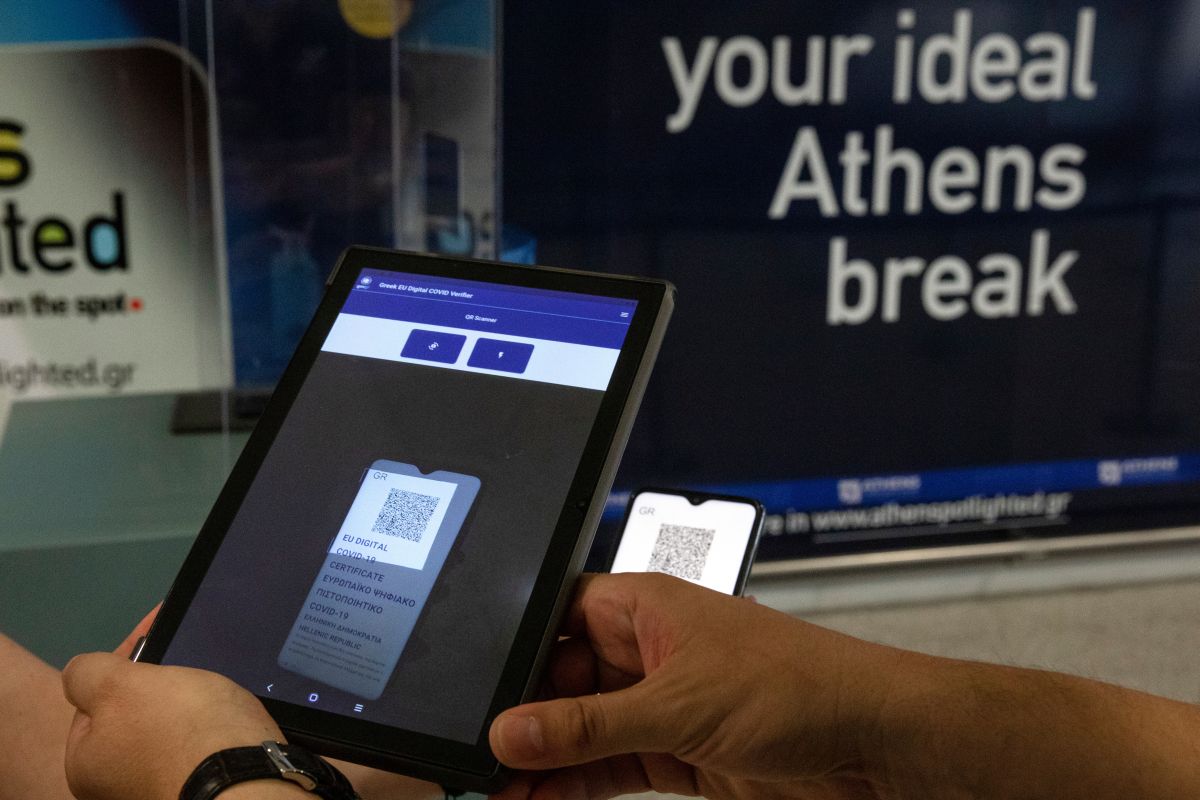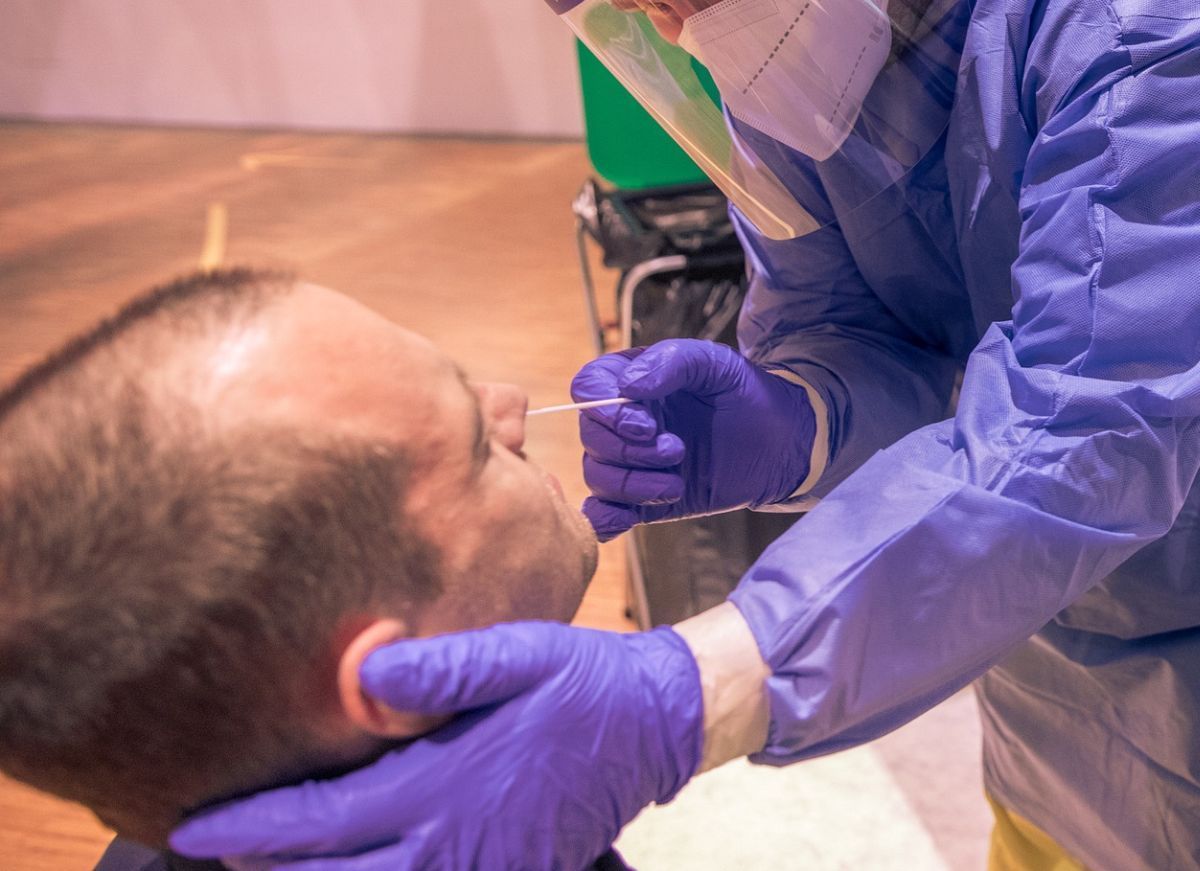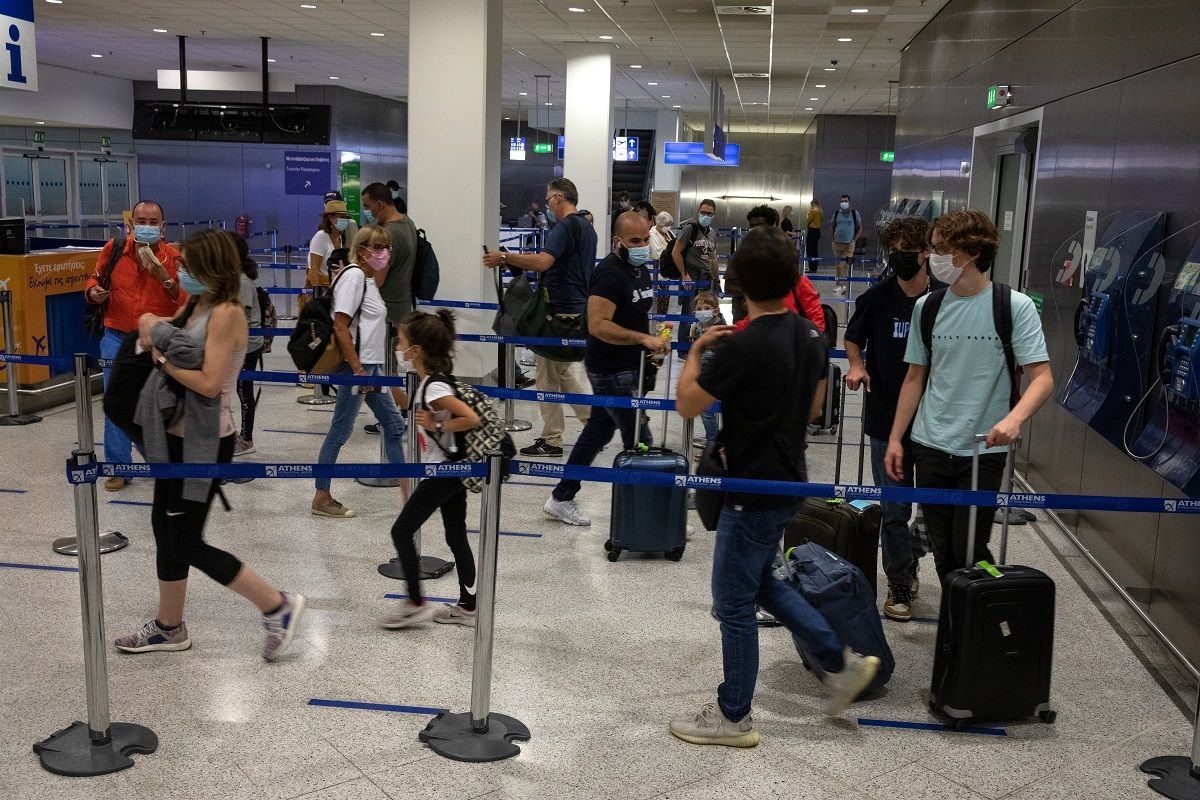Greece Updates Travel Rules for International Arrivals – PLF Not Needed from March 15
The Hellenic Civil Aviation Authority (HCAA) recently issued an update to its Covid-19 aviation directives (NOTAMs) that include the rules travelers arriving in Greece on international flights must follow.
What’s new
According to the updated directives, from March 15 and on, travelers will no longer be required to fill in the Passenger Locator Form (PLF) before entering Greece.
Moreover, the HCAA informs that Benin and Jordan have joined the EU digital Covid-19 certification system (EUDCC), which means that passengers from the two countries that hold a valid COVID certificate will not be subject to additional restrictions (testing before travel for the fully vaccinated) when they enter the country.
The new rules will be in place from March 7 until March 21.
The Covid-19 aviation directives issued by the HCAA, are part of the Greek government’s efforts to curb the spread of the coronavirus (Covid-19) in the country.
Following are Greece’s entry rules in detail.
Travel rules for international arrivals
Passenger Locator Form (PLF)
All travelers to Greece – except Ukrainian citizens – must submit the mandatory Passenger Locator Form (PLF) any time before the departure of their flight.
From March 15 and on, the PLF will no longer be required for travel to Greece.
EU Digital Covid Certificate (EUDCC) holders
There are no additional restrictions (such as the prior Covid-19 testing before travel requirement for the vaccinated) for European Union Digital Covid Certificate (EUDCC) holders coming from:
– the EU and Schengen zone countries
– the following 35 non-EU countries and territories that have joined the EUDCC system: San Marino, Albania, Andorra, Armenia, the Vatican, Northern Macedonia, Georgia, Switzerland, El Salvador, United Arab Emirates, the United Kingdom, Iceland, Israel, Liechtenstein, Lebanon, Morocco, Montenegro, Moldova, Monaco, Norway, New Zealand, Ukraine, Uruguay, Panama, Cape Verde, Serbia, Singapore, Thailand, Togo, Turkey, Tunisia, Benin, Jordan, Faroe Islands and Chinese Taipei.
The EU Digital Covid Certificate must include information on one of the following:
1) a vaccination certificate valid for nine months since full vaccination for Covid-19, and without validity limit for travelers who have received the booster dose
2) a recovery certificate valid for 180 days after its issue date
3) a negative PCR test performed within 72 hours before travel or a negative rapid antigen test performed within 24 hours before travel.
The rule is also in force for children aged 5 and over.
Non-EUDCC holders: Mandatory testing before entering the country
All other inbound travelers to Greece that do not have an EUDCC (including children over 5 years old) and regardless of their Covid vaccination status must present a negative PCR test result (performed within 72 hours before travel) or a rapid antigen test result (performed within 24 hours before travel) upon arrival.
Travelers from US, Canada & Australia
Vaccinated travelers entering Greece from the United States of America, Canada and Australia are exempt from additional restrictions upon arrival provided they have one of the following:
1) a vaccination certificate valid for nine months since full vaccination for Covid-19, and without validity limit for travelers who have received the booster dose
2) a recovery certificate valid for 180 days after its issue date
3) a negative PCR test performed within 72 hours before travel or a negative rapid antigen test performed within 24 hours before travel.
Random rapid testing on arrival
Every traveler who arrives in Greece, regardless if they are a holder of the EU Digital Covid Certificate, may be subject to random COVID-19 rapid test at the airport (depending on the data provided on the PLF forms and based on the ‘EVA’ system).
If a passenger is selected for a rapid test and is positive for the coronavirus then he/she must quarantine for a total of five days at home or in a temporary facility as indicated by Greek authorities. The isolation period begins the next day, after diagnosed positive for Covid-19.
The mandatory quarantine can end after five days as long as passengers have no symptoms or their symptoms have subsided (no fever for the last 24 hours without the use of antipyretics). Self-isolation is extended in case fever persists and until it subsides. These passengers are required to wear only a high filtering respirator mask (FFP2 or N95) or a double mask (surgical and fabric) for at least another five days after the end of the self-isolation period.
Wearing a mask is mandatory
At the arrival and departure areas inside airports, as well as during all domestic and international flights, staff and passengers are required to wear a face mask at all times.
Passengers are also required to comply with instructions of airport and airline staff responsible for supervising, crowd management and passenger assistance, in order to maintain the necessary distances and to ensure safe boarding/disembarkation to avoid overcrowding.
The compulsory travel documents passengers must have with them are checked by airline staff. According to the HCAA, airline staff is obliged to ascertain that travelers have all the necessary documentation before they board flight to Greece. In the case of violation, the airline will have to to repatriate the passenger at its own expense.
The Greek government has detailed information on a dedicated website with the entry rules to Greece. The website includes frequently asked questions.
Travelers are advised to contact their travel agent or airline to confirm the requirements before their trip. Those in need of specific details on the travel rules for passengers of international flights are advised to contact their embassy or the General Secretariat for Civil Protection.











Will random testing also end when PLF ends?